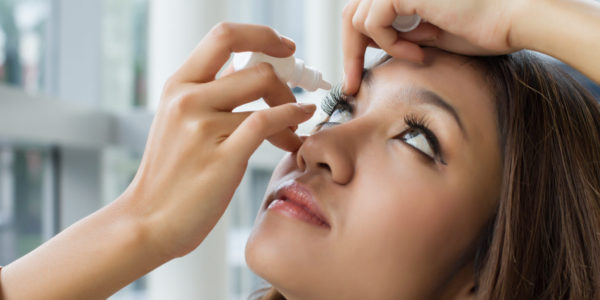
Read on as Mark Mandel, MD, a corneal specialist serving the Bay Area with offices in San Jose, Hayward and Castro Valley, explains what you should know about the study.
Side Sleepers Experience Worse Symptoms
Dr. David Alevi and his team at Ophthalmic Consultants of Long Island (OCLI) conducted a study of 125 patients with dry eye syndrome who said they slept on their sides. Many of the participants had issues with the function of the meibomian gland, which is responsible for secreting oils that prevent tears from evaporating too quickly.
The participants were asked to complete a questionnaire called the Ocular Surface Disease Index to assess the severity of their dry eye symptoms. Tests were performed in conjunction with the questionnaire to grade dry eye severity from patient to patient.
Dr. Alevi asked patients to switch from a side sleeping position to sleeping on their back. After changing sleep position, many patients experienced an improvement in their dry eye symptoms.
Although the research team couldn’t confirm the exact causal relationship between sleep position and symptoms of dry eye syndrome, they suggested that side sleepers may experience improper tear drainage. Another plausible theory is that patients that sleep with an eye pressed against a pillow may compress or clog their meibomian glands, preventing the glands from functioning properly and throwing off the composition of the tears.
What Does This Mean for People with Dry Eye Symptoms?
The OCLI study was a small study. Certainly more research is needed to make any conclusions about the relationship between sleep position and dry eye symptoms. However, if you are suffering the uncomfortable or debilitating symptoms of dry eye, it may be helpful to try sleeping on your back and look for any improvements.
Dr. Mandel can also work with you to find other ways to relieve your symptoms, such as the use of artificial tears, dietary supplementation or the placement of punctal plugs. After identifying the specific cause of your problems, Dr. Mandel can suggest the most appropriate course of treatment.
Contact Optima Eye
To book an appointment to discuss dry eye syndrome, please call 510-886-3937 or send us an email.


